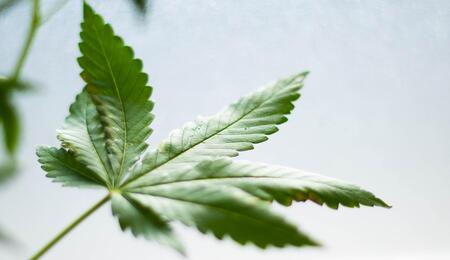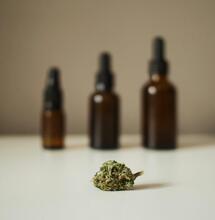CBD Does Not Impair Driving.

It’s a commonly asked question: does weed impair driving? Well latest research suggests, CBD is entirely safe for driving, and THC effects fade within hours.
A landmark study by scientists from the Lambert Initiative for Cannabinoid Therapeutics at the University of Sydney and carried out at the Netherlands' Maastricht University has shown something to be expected: CBD is entirely safe as an active medical component of the cannabis plant. However, the study pointed out that moderate THC intoxication produces mild driving impairment lasting up to four hours, which could have implications for drug-driving laws and managing medical cannabis. “These findings indicate for the first time that CBD, when given without THC, does not affect a subject’s ability to drive. That’s great news for those using or considering treatment using CBD-based products,” according to lead study author Dr Thomas Arkell. There has been a significant increase in medical treatment using cannabis-related products worldwide, including increased use of CBD-infused products for various conditions like anxiety, chronic pain, addictions and epilepsy.
A lot of the products available to treat any of these conditions may contain a mixture of both CBD and THC. The recent research involved 26 healthy participants inhaling vaporised cannabis containing different THC and CBD mixes, then going for a 100-kilometre drive (roughly 60 miles) in real-world controlled conditions, including driving on public highways both 40 minutes after inhaling and four hours afterwards. A driving instructor accompanied each participant. Cannabis containing mainly CBD was found not to affect driving, while cannabis with THC or a mix of CBD and THC was found to cause mild impairment measured at 40 minutes later; however, all-clear after four hours. Participants vaporised cannabis with mainly THC, mainly CBD, THC and CBD combined, or placebo products without active components. The THC amount vaporised by participants was enough to stir an intoxication sensation. “With cannabis laws changing globally, jurisdictions are grappling with the issue of cannabis-impaired driving,” Dr Arkell said. “These results provide much-needed insights into the magnitude and duration of impairment caused by different types of cannabis and can help to guide road-safety policy not just in Australia but around the world.” “Road safety is a primary concern. These results should allow for evidence-based laws and regulation for people receiving medical cannabis,” he said.
Professor Ian McGregor, the Academic Director of the Lambert Initiative, noted that studying how cannabis affects driving with such precision in real-world situations is necessary. “The results should reassure people using CBD-only products that they are most likely safe to drive, while helping patients using THC-dominant products to understand the duration of impairment,” McGregor said. “While some previous studies have looked at the effects of cannabis on driving, most have focused on smoked cannabis containing only THC (not CBD) and have not precisely quantified the duration of the impairment. “This is the first study to illustrate the lack of CBD effects on driving and to also provide a clear indication of the duration of THC impairment,” he said.
How weed impairs driving?
The use of weed, mainly when it contains its psychoactive component such as THC, might impair people's judgment. The motor coordination of the body becomes different, and there's an alternated perception on time. While some people may report that they feel more concentrated from smoking weed, including when driving, their chances to be involved in a road accident still increase. Research specifically points out the ability to perceive time and distance, as well as driver's concentration. Overall, weed can lead to bad judgments on the road, unwanted distractions and failure to read road signs as should. But the most significant risk still is when people combine weed with alcohol. Then, the danger of causing a highway mishap becomes much greater than just using weed, with research implying the combo of weed and alcohol doubles the risks of impaired driving.
Is driving while stoned common?
According to some research, it is. NHTSA, the National Highway Traffic Safety Administration in the U.S., points out to research that 11% of the time drugs and alcohol are involved in motor vehicle crashes. The NHTSA report also shows an increase in the number of drivers who have tested positive on having THC in their system. This may be due to the expanding legalization of cannabis in the U.S., including recreational and medical regulations. On the other hand, some drivers who use weed claim that smoking actually helps their concentration, therefore their ability to drive. While this may be true for the first few minutes of driving, research suggests that the driver might become distracted later, when their concentration may begin to dwindle. It may all depend on the amount of THC taken, however.
How to get home safely?
It’s best to pass the keys to a sober driver who can drive you to your final destination or wait until the effects of weed have passed. If you see a friend who’s too high to drive, take their keys and arrange for them to get home safely. Don’t worry about offending someone. You can apologize or say thank you later on. If you need to wait after smoking and having to drive, drink more water to sober up and avoid mixing alcohol. Don't forget that edible effects may hit an hour later. So if you feel all right now before getting in the car, you don't want the munchie to hit in while on the road. Weed is good. It helps you relax and makes you feel elated. But don't let it be the reason to later have regrets in life, or worse cases, be involved in an accident with extreme consequences. So, consume with caution.



